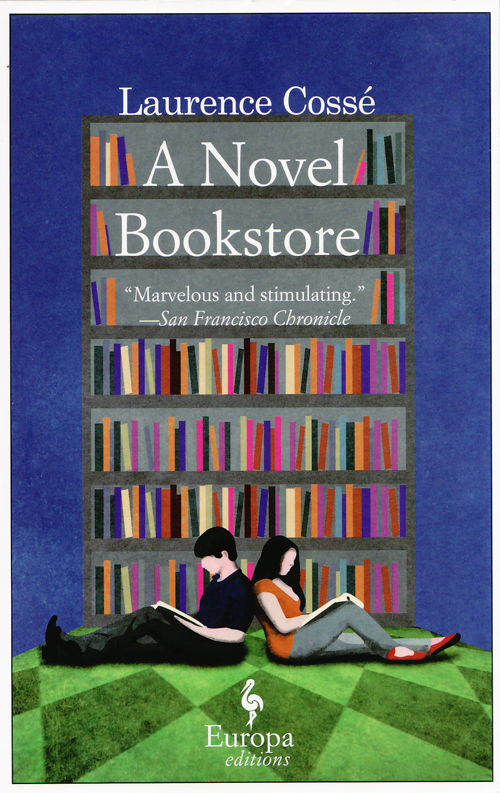Literature informs, instructs, it prepares you for life
A Novel Bookstore
by Laurence Cossé
translated from French by Alison Anderson
Have you ever dreamed of opening a bookshop? Have you ever planned what it would be like, how it would be different from all those other bookshops? I can’t decide whether this book would encourage or discourage such an ambition but there’s definitely some wish-fulfilment going on.
The novel opens with a series of attacks on seemingly unconnected people. I don’t want to reveal too much, but the link is The Good Novel, a Paris bookshop opened by rich booklover Francesca and idealistic bookseller Ivan. They discover that they share the same dream of a bookshop that sells only great novels, and pour everything into making their dream a reality, but their shop strikes a nerve in French cultural circles and comes under increasingly severe attacks.
“If I spent my money restoring a Roman viaduct or any other masterwork of our heritage, everyone would think it was a very worthy cause. What we are doing is no different. We are investing our time and money to support and enrich our literary heritage, which is being threatened by forgetfulness and indifference, not to mention disarray in taste. Our cause is undeniable.”
I found that I couldn’t grasp the tone at first. And then just as I was getting the hang of it, there was an odd switch from crime drama to the idealistic story of setting up the dream bookshop. But it’s a surprisingly enjoyable read considering all the action is in the first three chapters.
At the core of the book is the debate between high and low culture. Francesca and Ivan have pinned their hopes on high culture: their choice of “great” novels is primarily classic or overlooked literary works. They opt out of the bestseller lists and new releases, which isn’t the most effective business model and isn’t entirely popular with publishers and other bookshops – it does admittedly smack of snobbery – but of course it’s the authors whose books aren’t chosen for sale at The Good Novel who express the most anger.
“The essential problem raised by the notion of literary value is that this value changes with time. A work that might have been hailed by its contemporaries seems trivial a hundred years later, perhaps even thirty years later. Inversely, another work that was judged unpleasant or uninteresting may now be praised to the skies.”
Personally, I’m torn which side I’m on. Not that I condone the attacks on The Good Novel. And I love heartfelt book recommendations, such as are at the core of Ivan’s bookselling style. But I think getting people reading is always a good thing, and those easy reads and bestsellers – they’re a big part of that process.
“Literature is a source of pleasure, he said, it is one of the rare inexhaustible joys in life, but it’s not only that. It must not be disassociated from reality…There are grown-ups who will say no, that literature is not life, that novels teach you nothing. They are wrong. Literature informs, instructs, it prepares you for life.”
This book is jam-packed with references to “great” books and you could make a very long recommended reading list from it, though how many of them would be available in English translation I don’t know. The other thing it has going for it is a sub-plot that’s a sweet realistic romance. I kept expecting darker things around the corner but this novel’s beauty is its simplicity.
“He had no more imaginary space, nowhere he could escape to, no more expectations, all he could do was make himself available to the present moment, to what was immeasurable, the terrible profusion of moments that make up a day.”
Au bon roman published 2009 by Editions Gallimard, Paris.
Translation published 2010 by Europa Editions.
Source: Won in a giveaway from Savidge Reads.
Challenges: This counts towards the 2013 TBR Pile Challenge.
